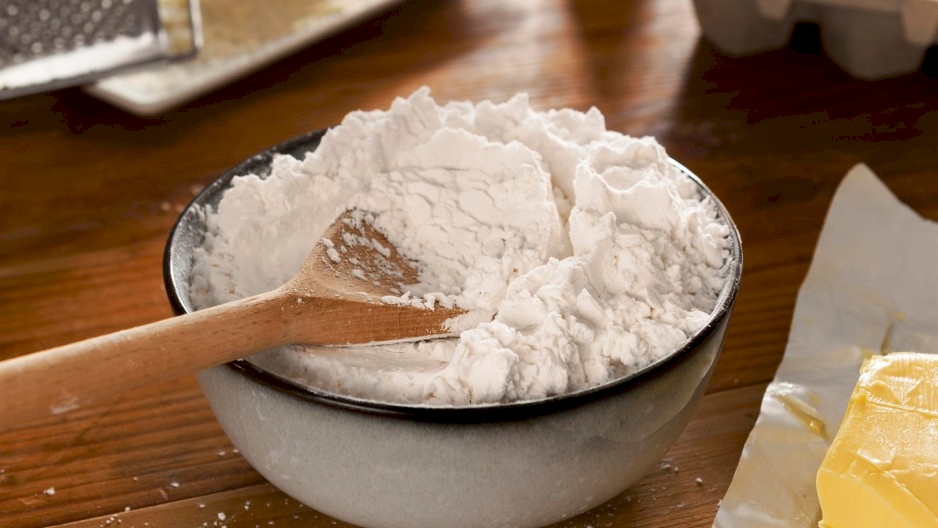
Are you often confused when reading recipes and coming across the terms baking soda or baking powder? These two ingredients may seem similar, often referred to as “baking agents,” but they actually have fundamental differences that are crucial to the success of your dishes. Choosing or using the wrong one can have disastrous consequences for the texture and taste of your food.
Don’t worry! This article will thoroughly explain the differences between baking soda and baking powder, how they work, when to use each one, and tips for proper substitutions so you no longer feel confused in the kitchen. Let’s dive into the secrets behind these two magical powders!
Related Post: Understanding the Main Differences Between Pastry and Bakery
Baking soda, also known as baking powder, is the common name for pure sodium bicarbonate (NaHCO₃). It is a base (alkali) that reacts when it comes into contact with acidic substances and liquids. This reaction produces carbon dioxide gas (CO₂), creating small bubbles that cause the dough to rise.
For baking soda to work optimally, it absolutely requires the presence of acidic ingredients in the recipe. Once baking soda comes into contact with acidic ingredients and liquids, a chemical reaction occurs immediately, producing rapid CO₂ bubbles. Examples of acidic ingredients commonly found in recipes include buttermilk, yogurt, vinegar, chocolate, honey, and fruits.
When should baking soda be used? You can use baking soda when the recipe you are following already contains sufficient acidic ingredients. Its primary function is to make the dough rise, resulting in a denser, softer texture, and often a crispy exterior, such as in certain types of cookies, muffins, or pastries.
Unlike baking soda, which is a single ingredient, baking powder is a mixture of several ingredients. Its main components are sodium bicarbonate, one or more acidic substances, and starch or cornstarch. Because baking powder already contains acidic components, it does not require additional acidic ingredients from the recipe to react.
There are two main types of baking powder:
This type of baking powder reacts after coming into contact with liquid. The dough must be baked immediately after mixing.
This is the most common type found on the market. It has two phases of reaction: one when it comes into contact with liquid, and another when it is exposed to heat (when it enters the oven).
Use baking powder in recipes that don't have enough acidic ingredients, or when you want the dough to rise higher, be lighter, and have more holes. Examples include recipes for sponge cakes, cupcakes, pancakes, or waffles.
Both can be substituted for each other, but with different conditions and consequences. If you substitute baking soda for baking powder, you can do so, but you will need to use more because baking powder has a lower concentration of sodium bicarbonate and is already mixed with other ingredients. The results may also differ; the dough may rise more, but the texture may not be as dense as expected.
Replacing baking powder with baking soda is not recommended. This is because you need to add an acidic ingredient to activate the baking soda. If you don’t add enough acidic ingredient, the dough won’t rise at all, and the result will be dense.
Related Post: Various Interesting Bread Fillings You Must Try
Understanding the difference between baking soda and baking powder is key to becoming a more skilled baker. Remember that baking soda requires acid to react, while baking powder already has everything it needs to rise. With this knowledge, Peekay friends can now be more confident in following recipes and even making substitutions if necessary.
For consistent and perfect dough results, Angel Double Acting Baking Powder is the right choice. With its ability to distribute more evenly in flour and its strong and long-lasting leavening power, Peekay Friends no longer need to worry about dough failure. The advantages of Angel Double Acting Baking Powder also lie in its alum-free formula and strict control of salt residue, resulting in a purer taste and no bitter aftertaste in your dishes.
 |
 |
 |
